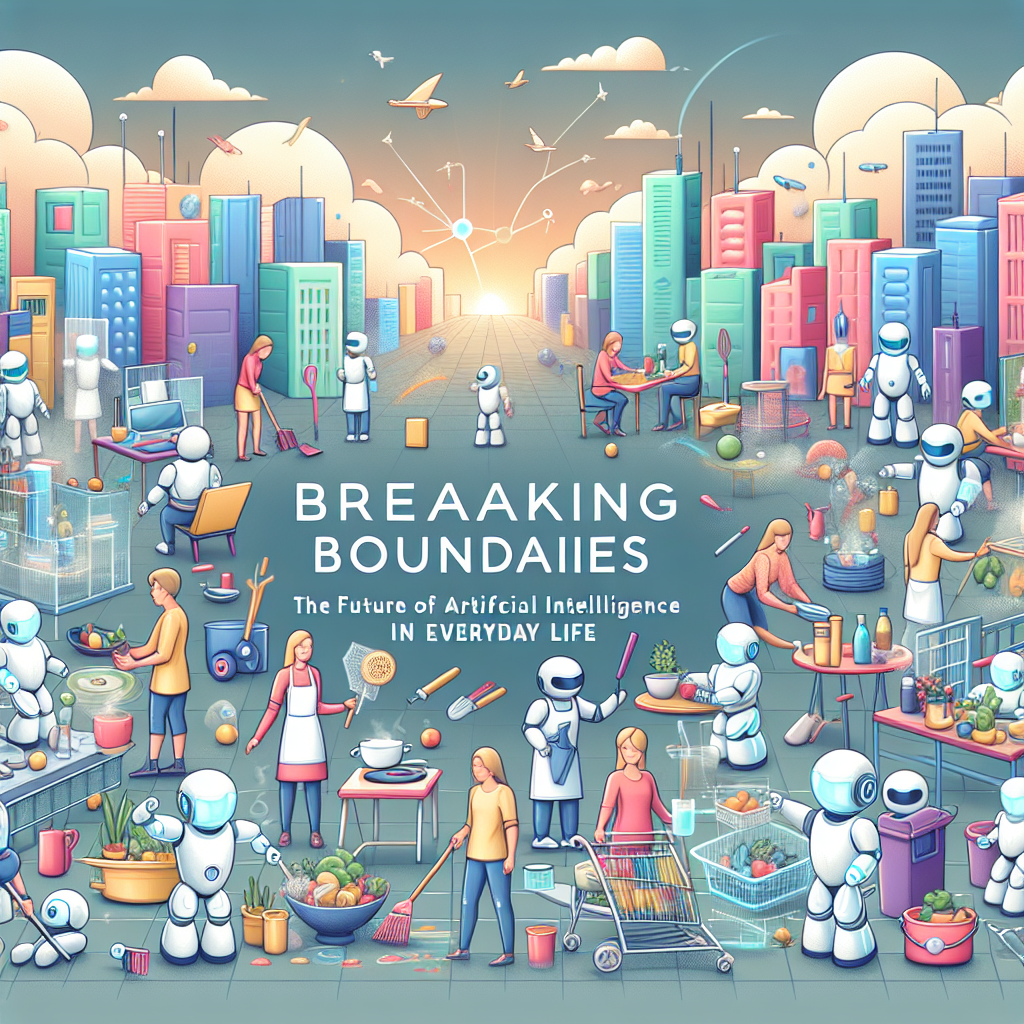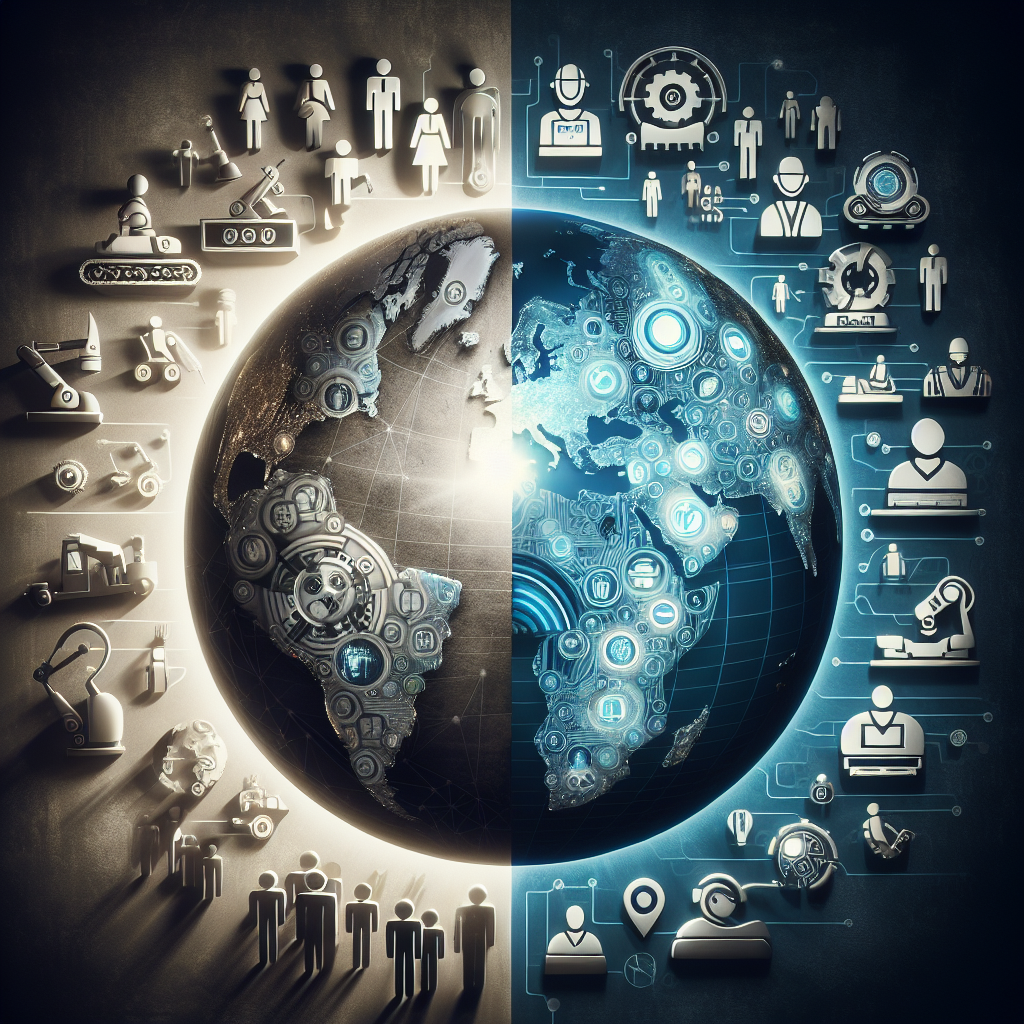Breaking Boundaries: The Future of Artificial Intelligence in Everyday Life
The evolution of artificial intelligence (AI) over the past decade has been nothing short of revolutionary. What once was the subject matter of science fiction is now permeating various facets of our everyday lives, streamlining tasks, providing convenience, enhancing productivity, and sometimes even performing roles traditionally occupied by humans. As we venture deeper into the era of digitization, AI is breaking boundaries and shaping a futuristic landscape that promises endless possibilities.
AI in the Home
One of the most significant areas where AI is making an impact is within the domestic sphere. Smart home technologies powered by AI have transformed the way we interact with our living spaces. Devices like AI-driven assistants—think Amazon’s Alexa, Apple’s Siri, and Google Assistant—serve as the central hub for smart homes, allowing for voice-activated control over lighting, heating, security systems, and household appliances.
Moreover, robotic vacuums and lawnmowers are increasingly taking over mundane chores, providing homeowners with more leisure time. Predictive maintenance algorithms can anticipate the failure of household appliances, scheduling repairs before a breakdown occurs, thus eliminating inconvenience and unexpected costs.
AI in Healthcare
The healthcare sector stands to gain tremendously from AI innovations. From diagnostics to treatment, AI is paving the way for a future where medical services are more accurate, affordable, and accessible. AI algorithms analyze medical data, identifying patterns and making diagnoses with, in some cases, better accuracy than human doctors. Technologies such as IBM’s Watson Health are already assisting medical professionals by analyzing vast amounts of data to recommend treatment options.
Wearable technology, integrated with AI, monitors vital signs in real-time, alerting users and medical professionals to potential health risks before they escalate. This proactivity leads to early intervention, ultimately saving lives and reducing healthcare costs.
AI in Transportation
Transportation is another sector undergoing major transformations thanks to AI. The advent of self-driving cars, pioneered by companies like Tesla and Waymo, promises to make roads safer by reducing human error, which is responsible for a significant percentage of traffic accidents. AI systems continuously learn from real-world driving scenarios, improving their safety and efficiency over time.
Public transportation is also being optimized through AI-driven data analytics, which can predict passenger patterns, optimize routing, and reduce wait times, thereby making commuting faster and more efficient.
AI in Retail
Retailers are rapidly adopting AI to enhance the shopping experience. Personalized recommendations, powered by AI, have become the norm, providing customers with suggestions tailored to their preferences and buying history. Virtual shopping assistants guide consumers through their shopping journeys, answering questions and providing real-time support.
Furthermore, inventory management is becoming more efficient with AI algorithms that predict demand, minimize waste, and ensure that products are always available when needed. Retailers also employ AI for sophisticated fraud detection, ensuring that customer transactions remain secure.
AI in Education
Education is undergoing a paradigm shift with the integration of AI. Intelligent tutoring systems provide personalized instruction to students, adapting to their learning pace and style. This individualized approach ensures that each student receives the support they need to excel.
Additionally, AI is enabling the creation of immersive learning experiences through tools like virtual reality (VR) and augmented reality (AR), making abstract concepts easier to understand and more engaging.
Ethical Considerations and Challenges
While the future of AI is filled with promise, it is also fraught with challenges that must be navigated carefully. Concerns such as data privacy, job displacement, and algorithmic bias are real and require diligent attention to manage. The ethical deployment of AI necessitates the establishment of robust regulatory frameworks and continuous dialogue among stakeholders to ensure that the benefits of AI are equitably distributed and potential harms are mitigated.
Conclusion
As AI continues to break boundaries, its integration into everyday life will undoubtedly become more seamless and pervasive. The myriad applications of AI—ranging from smart homes and healthcare to transportation, retail, and education—illustrate its transformative potential. While the journey towards a fully AI-powered world will require thoughtful consideration of ethical challenges, the horizon teems with opportunities to enhance our quality of life. The future, it seems, is not just shaped by artificial intelligence but will be inherently intelligent in itself.














Leave feedback about this
You must be logged in to post a comment.